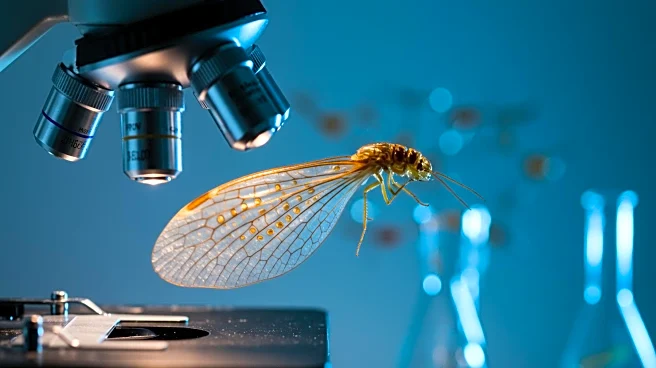What's Happening?
The insect agriculture industry is leveraging genomics to enhance quality control in the domestication of insects for sustainable protein production. By using biotechnology tools, researchers aim to anticipate and mitigate issues associated with domestication, such as reduced immune capabilities and genetic homogeneity. The industry focuses on insects like the black soldier fly and mealworm, which can be farmed on organic waste, contributing to a circular agricultural system. Genomic tools allow breeders to monitor genetic markers, ensuring the preservation of valuable traits while selecting for economically beneficial characteristics. This approach aims to prevent the vulnerabilities seen in other domesticated species, such as chickens, which have lost immune defenses due to controlled environments.
Why It's Important?
The use of genomics in insect agriculture could revolutionize sustainable protein production, offering an environmentally friendly alternative to traditional livestock farming. By maintaining genetic diversity and robust immune systems, the industry can avoid the pitfalls of monoculture farming, which can lead to disease outbreaks and economic losses. This approach supports the growing demand for sustainable food sources and aligns with global efforts to reduce the environmental impact of agriculture. The ability to monitor and edit genetic traits proactively could enhance the resilience and productivity of farmed insects, contributing to food security and waste reduction.
Beyond the Headlines
The ethical implications of genetic editing in agriculture raise questions about biodiversity and the long-term effects on ecosystems. As the industry advances, it will be important to balance technological innovation with ecological considerations, ensuring that domestication practices do not disrupt natural habitats or lead to unintended consequences. The integration of genomics in agriculture also highlights the need for regulatory frameworks to address potential risks and ensure safe practices.











